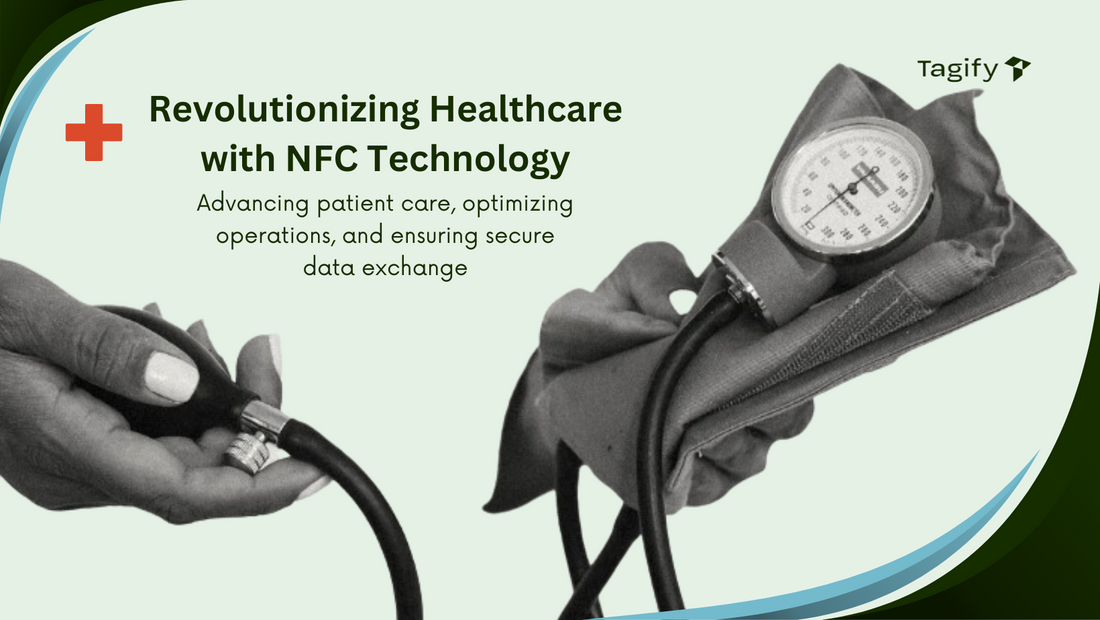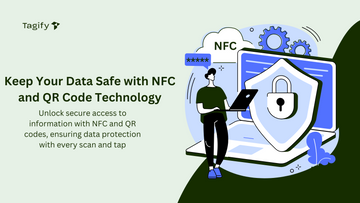How NFC Improves Healthcare

Contents
How NFC is Transforming the Healthcare Industry
Near Field Communication (NFC) technology is playing a transformative role in healthcare, offering innovative solutions that enhance patient care, streamline operations, and improve overall efficiency. By enabling secure, contactless data exchange, NFC is revolutionizing various aspects of healthcare delivery, from patient identification to medication management. As hospitals and clinics adopt this technology, they create a more connected, responsive healthcare system that benefits both patients and providers.
Enhancing Patient Identification and Safety
Accurate patient identification is crucial for effective treatment, as errors in identification can lead to delays and mistakes in administering care. NFC-enabled wristbands or cards can store essential patient information, allowing healthcare providers to access a patient’s medical records instantly with a simple tap of a compatible device. This reduces errors associated with manual data entry, ensuring that patients receive appropriate and timely care. For instance, many hospitals are adopting NFC wristbands to streamline patient check-ins, medication administration, and discharge processes.
NFC technology also enhances patient safety in emergencies, as emergency responders can quickly access critical medical information, such as allergies or underlying conditions, directly from the NFC-enabled wristband or card. By improving accuracy in patient identification, NFC contributes to a safer healthcare environment, minimizing the risk of miscommunication or human error in critical situations.
Streamlining Medication Management
Medication errors are a significant concern in healthcare, posing risks to patient safety and adding costs to healthcare facilities. NFC technology helps mitigate these risks by providing healthcare professionals with accurate, up-to-date information about medications. Pharmaceutical companies are embedding NFC tags into packaging, allowing doctors, nurses, and even patients to access dosage instructions, potential side effects, and expiration dates simply by tapping their smartphones or NFC readers on the package.
This capability not only enhances patient safety but also encourages patients to adhere to prescribed treatments. With clear, accessible information, patients are less likely to make mistakes in self-administration, especially when managing multiple medications. Hospitals are also using NFC to track and verify medication administration, reducing the chances of incorrect dosages and ensuring that patients receive the right treatment at the right time.
Improving Equipment Tracking and Maintenance
Efficient management of medical equipment is essential in healthcare settings, where timely access to functioning equipment can be a matter of life or death. NFC tags attached to equipment allow staff to track the location, maintenance history, and usage patterns of devices, providing real-time information on the status and availability of critical tools. This tracking capability is invaluable for large healthcare facilities, where equipment can easily be misplaced or improperly maintained.
With NFC, hospitals can automate maintenance schedules, receiving alerts when equipment requires servicing. This proactive approach minimizes downtime and prevents costly equipment failures. By ensuring that equipment is available and well-maintained, NFC technology enhances patient care and improves operational efficiency.
Facilitating Secure Data Exchange
The secure exchange of patient data is a top priority in healthcare, particularly with the growing emphasis on data privacy and security. NFC technology enables encrypted, contactless communication between devices, ensuring that sensitive patient information is transmitted safely and only accessible to authorized personnel. This secure data transfer is especially useful for updating electronic health records (EHRs) and sharing information between departments or even with external specialists, such as when a patient needs a referral or a second opinion.
By facilitating secure data exchange, NFC helps healthcare providers maintain compliance with data protection regulations and build patient trust. Patients are increasingly aware of data security concerns, and the use of encrypted NFC solutions reassures them that their personal information is being handled responsibly.
Enhancing Patient Engagement and Education
NFC technology empowers patients by providing easy access to their health information and educational resources, encouraging them to take a more active role in managing their health. For example, clinics can set up NFC-enabled posters or brochures that patients can tap to access information about medical conditions, treatment options, wellness programs, or preventative care. This interactive approach allows patients to educate themselves on relevant health topics and make informed decisions.
NFC can also be used in patient rooms or waiting areas to offer guidance on preparing for upcoming procedures, understanding post-care instructions, or managing chronic conditions. By integrating educational resources with NFC, healthcare providers can improve patient outcomes and satisfaction, as informed patients are more likely to follow recommended care plans.
Supporting Remote Monitoring and Telemedicine
With the rise of telemedicine, NFC is playing an increasingly important role in remote patient monitoring. Wearable NFC devices, such as wristbands, can collect and transmit vital signs like heart rate, blood pressure, or glucose levels to healthcare providers, allowing for continuous monitoring of patients with chronic conditions. This real-time data enables timely interventions, reducing the need for frequent in-person visits and making healthcare more accessible and efficient.
For patients living in remote areas or with mobility issues, NFC-based remote monitoring can make a significant difference in their quality of life. Doctors can monitor patients’ health without the need for constant visits, and they can quickly adjust treatment plans based on real-time data. NFC’s role in remote monitoring is paving the way for more personalized, patient-centered care.
Conclusion
NFC technology is revolutionizing the healthcare industry by enhancing patient safety, improving operational efficiency, and facilitating secure data exchange. From patient identification and medication management to equipment tracking and patient engagement, NFC offers a wide range of applications that benefit both healthcare providers and patients. As more healthcare facilities integrate NFC solutions, patients can expect more personalized and efficient care, while facilities benefit from streamlined processes and improved resource management.
The integration of NFC into healthcare signifies a significant step toward a more connected, responsive healthcare system. With its potential to improve both patient outcomes and operational workflows, NFC is proving to be a valuable asset in shaping the future of healthcare.








